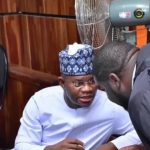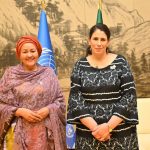Northern Nigeria Decries Economic Stabilization Bills: A Call for Rethink and Consultation.
By Bala Salihu Dawakin kudu
Northern Bureau Chief
November 29, 2024
The proposed Economic Stabilization Bills represent a significant overhaul of Nigeria’s tax administration and revenue framework. However, the people of Northern Nigeria have expressed strong opposition to these bills, citing concerns over potential hardships, poverty, unemployment, hunger, and insecurity. The Progressive Amalgamation of Northern Nigeria (PANN) has joined voices advising members of the National Assembly—both the Senate and House of Representatives—to critically examine the bills and their implications.
The four bills proposed—Nigeria Revenue Service (NRS) Bill, Nigeria Tax Administration Bill, Joint Revenue Board (JRB) Bill, and Nigeria Tax Bill—present a mix of reforms aimed at modernizing the nation’s tax system. However, the people of Northern Nigeria believe that these bills, while potentially beneficial to certain regions like Lagos, may disproportionately disadvantage others, especially the North.
1. Nigeria Revenue Service (NRS) Bill: A Double-Edged Sword
The NRS Bill seeks to replace the Federal Inland Revenue Service (FIRS) with the Nigeria Revenue Service (NRS). The NRS is envisioned to assist states, local governments, and other governmental bodies in tax collection through mutual agreements. While this collaborative approach aims to streamline tax administration, critics argue that it could widen regional disparities.
For instance, high-revenue states like Lagos are better positioned to benefit from such reforms, while Northern states, with limited economic activities, may struggle to compete. The people of Northern Nigeria believe this bill could exacerbate poverty and developmental inequalities.
2. Joint Revenue Board (JRB) Bill: Integration or Exclusion?
The transition from the Joint Tax Board (JTB) to the Joint Revenue Board (JRB) expands the board’s responsibilities, including maintaining a centralized database of all taxable persons and collaborating with entities like NRS and local governments. The inclusion of a Tax Ombud for fairness and dispute resolution is a notable innovation. However, the emphasis on taxpayer identification and compliance could alienate regions with limited technological penetration.
For example, the requirement for Taxpayer Identification Numbers (TIN) and the use of email for tax assessments raise concerns. Many communities in Northern Nigeria, where technological infrastructure is underdeveloped, may find it challenging to comply, further marginalizing them.
3. Nigeria Tax Administration Bill: Modernization at What Cost?
This bill aims to modernize and streamline tax administration, emphasizing processes like VAT fiscalization and electronic transaction recording. However, mandatory tax compliance for upstream oil and gas companies, as well as individuals, may disproportionately affect the masses.
The bill’s potential benefits, such as improved tax filing and refunds, could be inaccessible to many in Northern Nigeria due to technological and infrastructural gaps. The people fear that the economic burden imposed by these measures may outweigh any developmental gains.
4. Nigeria Tax Bill: A Unified Framework with Unequal Outcomes
The Nigeria Tax Bill seeks to unify and repeal existing tax laws, creating a comprehensive taxation framework. However, the inclusion of provisions like increased taxes on investments, employer-paid rents, and personal income introduces concerns about fairness and feasibility.
For instance, the development levy, replacing TETFUND and other levies, introduces phased rates that some believe could stifle economic activities. Corporate Tax reforms, while beneficial for small companies, may place undue burdens on medium and large enterprises in regions with weaker economies.
Revenue Sharing Disparities
The revised VAT distribution formula—10% to the Federal Government, 55% to states, and 35% to local governments—appears equitable on the surface. However, the 60% derivation principle favors high-revenue states, leaving Northern states at a disadvantage. This inequality could lead to underdevelopment and further insecurity in the region.
Conclusion and Call to Action
The people of Northern Nigeria see these bills as a potential “dangerous trap” for economic development in their region. They urge the National Assembly to conduct thorough consultations, including public hearings, with economists, regional representatives, and the masses before approving these bills.
A more inclusive approach is necessary to ensure that these reforms do not exacerbate existing inequalities or create new challenges for vulnerable populations. The future of Nigeria’s economic stability depends on policies that balance modernization with equitable development across all regions.
by Bala Salihu Dawakin kudu Northern Bureau Chief.
Democracy Newsline Newspaper Abuja. 08060017934












